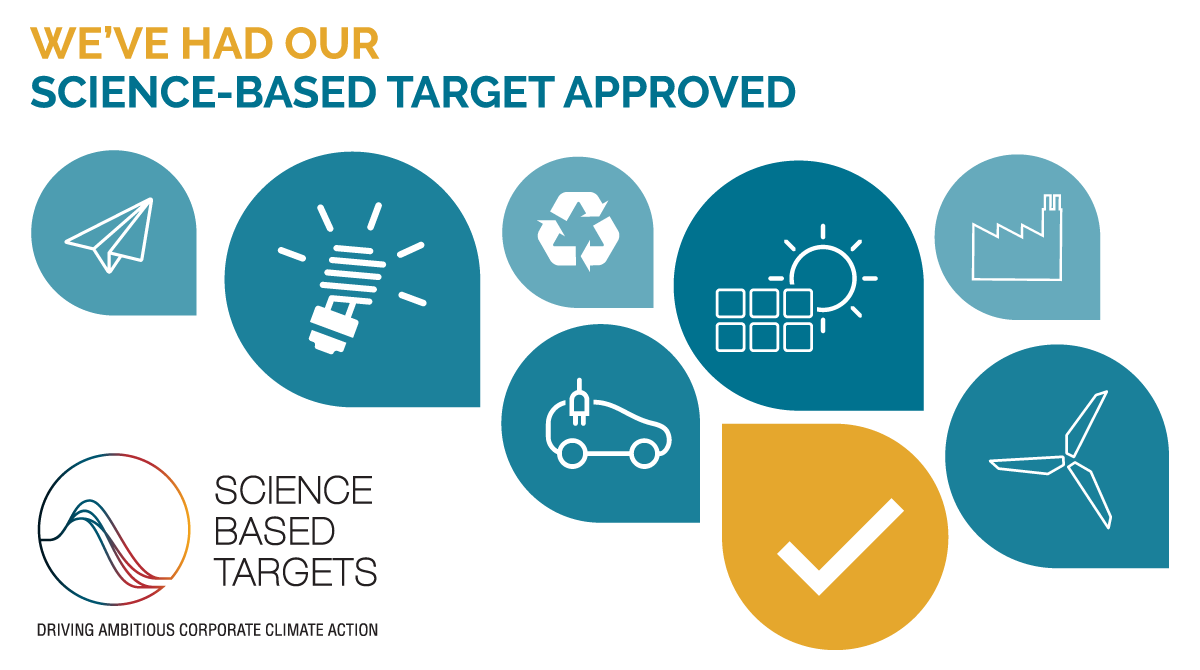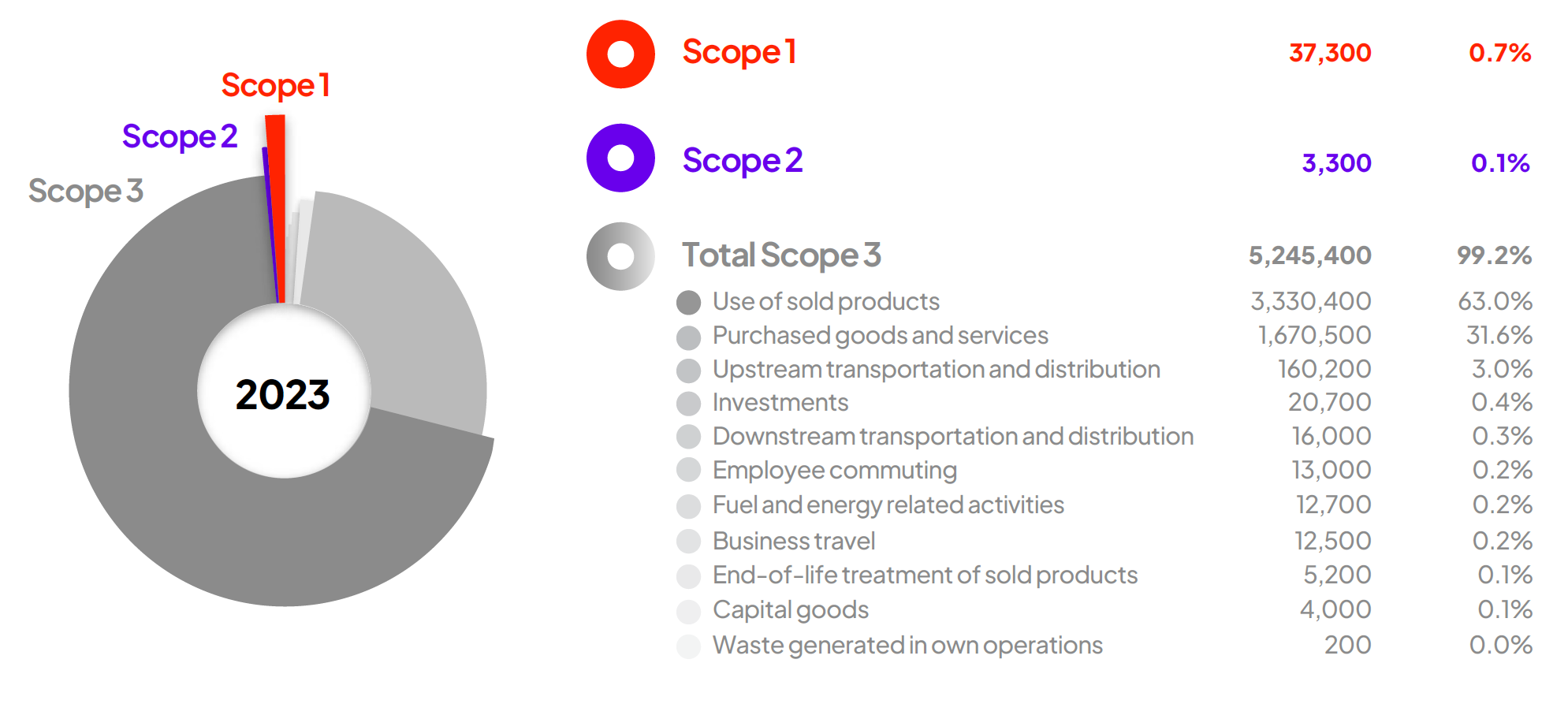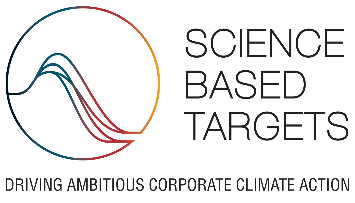The latest climate research proves an urgent need to cut emissions in order to limit global warming. Konecranes wants to be a part of the solution and has set climate targets that will target emissions in both its own operations and its value chain.
The targets have been validated by 3rd party called Science Based Target Initiative as being in line with limiting global warming to 1.5°C. Konecranes has committed to reduce emissions from its own operations, meaning Scope 1 and 2 emissions by 50% by 2030. For value chain emissions (Scope 3), Konecranes aims to reduce absolute carbon emissions by 50% by 2030, encompassing the use of sold products and steel-related purchases.
As the target for Scope 1 and 2 emissions was achieved by the end of 2022, Konecranes aims to further reduce the emissions from the original target, now aiming for carbon neutral own operations by 2030.

Konecranes emission inventory
Our own operations (Scope 1 & 2) cover less than one percent of our total emissions. Ninety-nine percent of our emissions originate from the value chain. Most of the emissions are generated in two emission categories: use of sold products and purchased goods and services. The largest source of emissions in the category “purchased goods and services” is steel. In the category “use of sold products”, diesel-driven products dominate the emissions.

Our approach
Konecranes will focus on minimizing the largest impacts of its footprint and will follow the progress for two targets. One for own operations and second one for value chain.

OWN OPERATIONS
Concerning Scope 1 and 2 greenhouse gas (GHG) emissions, Konecranes committed to reduce its absolute carbon emissions by 50% by 2030. By the end of 2022, Konecranes already reached the Scope 1 and 2 science-based target, mainly by investing into the energy efficiency of the production processes, by improving the fuel efficiency of the fleet as well as switching to 100 % renewable electricity in all factories. However, the Konecranes continues the work to further reduce the emissions from the original target, aiming for carbon neutral own operations by 2030.
VALUE CHAIN
For Scope 3, Konecranes aims to reduce its absolute carbon emissions by 50% by 2030, encompassing the use of sold products and steel-related purchases. This Scope 3 target covers more than 70% of the value chain emissions. We will seek new technological innovations to reduce dependency on fossil fuels and to increase energy efficiency. The Scope 3 target will be reached by electrifying our offering in Port Solutions business, developing more energy-efficient hoists for Industrial Equipment business and reducing value chain emissions from steel purchases in cooperation with our suppliers. As steel is a carbon intensive material, we will need to cooperate with our steel suppliers to reduce the overall emissions related to steel. We have investigated the maturity level of the climate targets our suppliers have set and will challenge suppliers to set science-based targets. We will also work to increase the share of recycled steel.
We will also focus on advancing digitalization to make material handling more productive while minimizing emissions. To limit any excess waste, we design our products to be maintainable, durable and optimized for overall weight. Additionally, Konecranes will continue to seek new ways to decrease emissions and drive its sustainable portfolio development.
Scope 1 and 2 emissions data is collected monthly for progress monitoring. Scope 3 data is currently collected at least on an annual basis.
About the Science Based Targets initiative (SBTi)
The Science Based Targets initiative (SBTi) helps companies establish emission targets following latest climate-science to reduce greenhouse gas emissions.

Targets adopted by companies to reduce greenhouse gas emissions are considered to be science-based if they are in line with the latest climate science on meeting the goals of the Paris Agreement to limit global warming to 1,5°C compared to pre-industrial levels and to pursue efforts to limit global warming to 1.5°C. SBTi is a collaboration between CDP (Carbon Disclosure Project), United Nations Global Compact (UNGC), World Resources Institute (WRI) and World Wildlife Fund (WWF).




